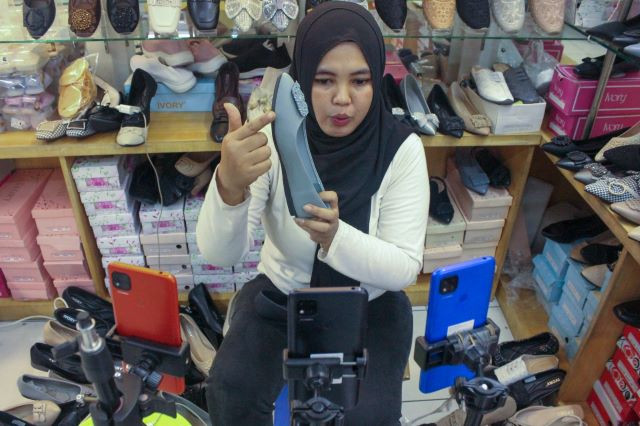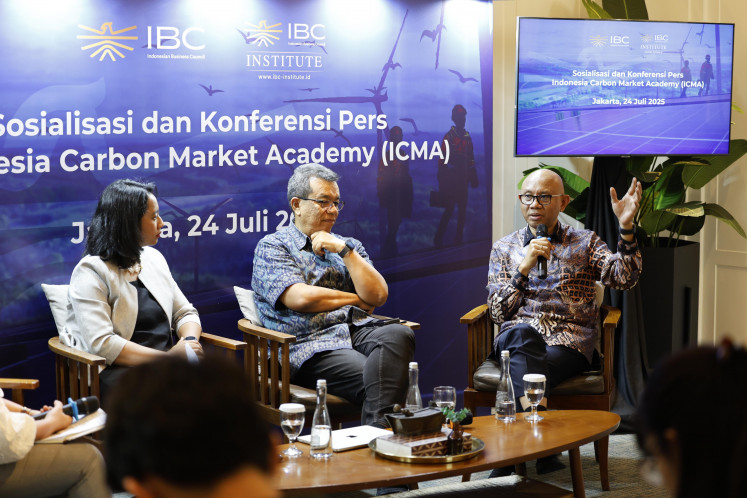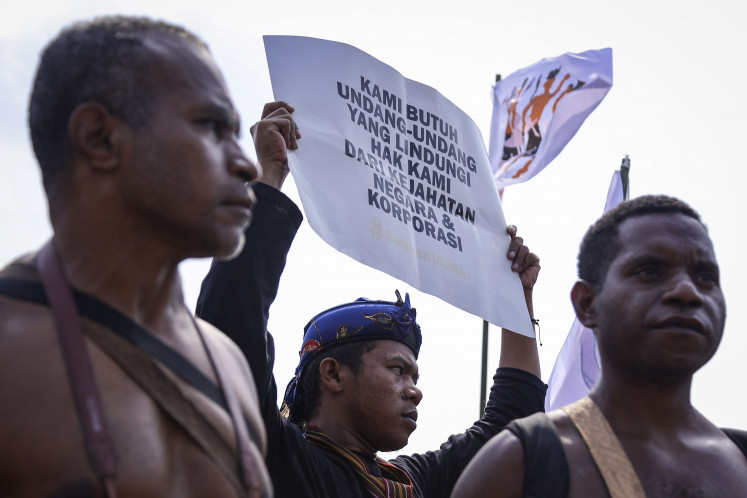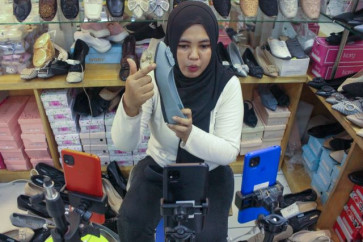Popular Reads
Top Results
Can't find what you're looking for?
View all search resultsPopular Reads
Top Results
Can't find what you're looking for?
View all search resultsTikTok Shop debacle: The antitrust law needs amending
The issues related to e-commerce are not merely about technological advancements but also from new market dynamics, where algorithms and data are utilized as tools and strategies to identify and influence consumer behavior and to control the market.
Change text size
Gift Premium Articles
to Anyone
 Sole trader: A trader advertises her products through a live stream on social media platform TikTok at Tanah Abang market in Jakarta on Oct. 4, 2023. TikTok Indonesia closed the operation of TikTok Shop that day, after the government issued a regulation banning transactions on social media platforms to protect local small and medium enterprises. (Antara/Walda Marison)
Sole trader: A trader advertises her products through a live stream on social media platform TikTok at Tanah Abang market in Jakarta on Oct. 4, 2023. TikTok Indonesia closed the operation of TikTok Shop that day, after the government issued a regulation banning transactions on social media platforms to protect local small and medium enterprises. (Antara/Walda Marison)
With the rise of digitalization, the dynamics of competition in e-commerce have drastically changed compared with traditional markets. This shift has also introduced social commerce, commonly known as s-commerce, as a new phenomenon in Indonesia's digital economy.
S-commerce combines the advantages of e-commerce and social media, enabling interactions and transactions between customers and merchants within a single platform.
In Indonesia, TikTok Shop has steadily expanded its presence within the competitive online shopping sector over the past two years, a market primarily dominated by platforms such as Tokopedia, Shopee and Lazada.
It is worth noting that there are 125 million active TikTok users in Indonesia, including 6 million sellers and content creators who utilize TikTok Shop for revenue generation by selling their products on the platform.
However, this new trend in s-commerce has sparked a debate, leading to the shutdown of TikTok Shop on Oct. 4, although it was later confirmed to be a "temporary" measure.
The ban was triggered by protests from the small and medium enterprise (SME) actors, especially those at the Tanah Abang wholesale center, who complained to have been disadvantaged from the unfair competition in the market taking into account e-commerce, specifically s-commerce such as TikTok Shop, has the ability to dominate and affect the market price as most goods sold on the platform are imported and sold with relatively very low prices.
Some local sellers reported experiencing a daily revenue drop of more than 80 percent in recent months. To address this issue, the government enacted Trade Ministerial Regulation No. 31/2023 which governs the prohibition for social media to dual act as e-commerce, the government also imposes a price control by setting the minimum price for imported goods sold, which is US$100, to avoid predatory pricing.


















